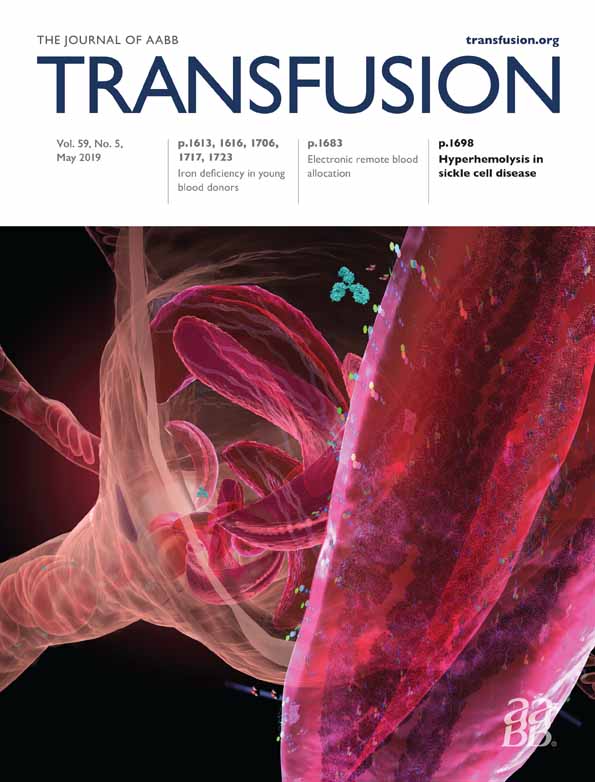A blockage monoclonal antibody protocol as an alternative strategy to avoid anti-CD38 interference in immunohematological testing
Abstract
BACKGROUND
As CD38 is expressed on red blood cells (RBCs), the plasma of patients on daratumumab (DARA) reacts with the panel cells of pretransfusion tests, masking underlying alloantibodies. The treatment of RBCs with dithiothreitol (DTT) is the most disseminated method to overcome DARA effect on immunohematological tests, but it hampers the identification of potentially harmful antibodies. Our goal was to validate a new strategy, the blockage monoclonal antibody protocol (BMAP), to mitigate the DARA interference on RBCs using anti-CD38 and antihuman globulin.
METHODS
Samples of patients receiving DARA were included in the study. Sera were tested using both DTT- and BMAP-treated RBCs, which comprised three steps: 1) titration of monoclonal anti-CD38, 2) treatment of RBCs obtained from donors with anti-CD38, and 3) blockage of anti-CD38–adsorbed RBCs with antihuman globulin.
RESULTS
Twenty patients were included in the study. Donor RBCs were treated with anti-CD38 and successfully blocked with antihuman globulin. In 19 patients, DARA-mediated agglutination was eliminated using both DTT- and BMAP-treated RBCs. In one patient, agglutination persisted when tested against the BMAP-treated RBCs, and alloantibodies were identified. Patient samples were mixed with commercial anti-D, -C, −e, -K, −Jka, -Kpb and tested against antigen-positive BMAP-treated RBCs, resulting in detection of these antibodies.
CONCLUSION
This study validated a new strategy to minimize the interference of DARA on immunohematological tests. The protocol preserves the integrity of RBC antigens, permitting the detection of antibodies from all blood group systems. The BMAP has potential use in other situations where specific antibodies may interfere with pretransfusion screening.
CONFLICT OF INTEREST
The authors have disclosed no conflicts of interest.




